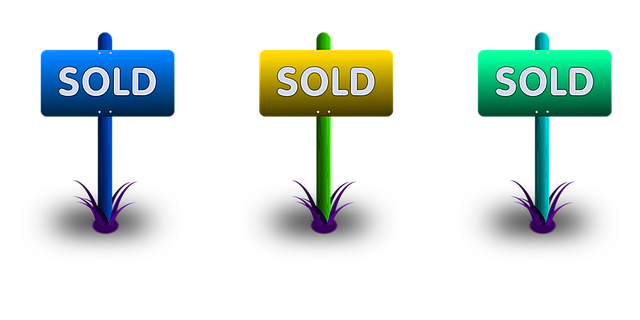Personal Contract Purchase (PCP) offers flexible car financing, but vigilance is crucial to avoid mis-sold car finance. This occurs due to hidden fees, complex terms, and aggressive sales tactics, leading to unforeseen financial strain. Early signs include unusual contract terms, pressure sales, and unexpected payment changes. Consumers should review contracts, gather evidence, and consider negotiation, legal advice, or support from consumer rights groups to recover from mis-sold PCP agreements.
Personal Contract Purchase (PCP) offers a flexible way to buy a car, but it’s crucial to understand its intricacies to avoid potential pitfalls. This article delves into the world of PCP, exploring how mis-sold car finance can occur and the signs to look out for. We guide you through the process, empowering you to take action if you’ve been affected by mis-sold PCP deals. By understanding these aspects, you can protect yourself from unfair practices in the car financing landscape.
- Understanding Personal Contract Purchase (PCP)
- How Mis-sold Car Finance Can Happen
- Recognizing the Signs of a Mis-sold PCP
- Taking Action Against Mis-sold Car Finance
Understanding Personal Contract Purchase (PCP)

Personal Contract Purchase (PCP) is a popular financing option for car buyers, offering a flexible and low-risk alternative to traditional car loans. Unlike a standard loan where you repay the full cost of the vehicle over time, PCP allows you to own a percentage of the car while making regular monthly payments. This finance type has gained traction, especially in the UK, as it provides buyers with more freedom and control over their purchases.
One key aspect that sets PCP apart is its potential protection against mis-sold car finance. Unlike some other loan types, PCP agreements often include a buy-back option at the end of the term, ensuring that even if you can’t or don’t want to keep the vehicle, you won’t be left with an unsellable asset. This feature makes PCP particularly appealing for those who value peace of mind and the security of knowing their financial obligations are capped.
How Mis-sold Car Finance Can Happen

Mis-sold car finance can occur due to a variety of factors, often stemming from inadequate disclosure and understanding of the terms and conditions by the borrower. It happens when a consumer is enticed into a car purchase agreement with unfavourable or unclear financial terms, or where the lender has not fully disclosed all associated costs and risks. For instance, hidden fees, high-interest rates, and complex repayment structures can be difficult for buyers to grasp, leading to unforeseen financial strain post-purchase.
Dealers or lenders might employ aggressive sales tactics, failing to explain key concepts like Annual Percentage Rate (APR) or providing incomplete information about potential penalties and charges. This lack of transparency catches consumers off guard when they face unexpected monthly payments, hidden fees for missing payments, or unfavourable early termination penalties. Such practices constitute mis-sold car finance, leaving borrowers with significant financial burden and a vehicle they may struggle to afford or pay off.
Recognizing the Signs of a Mis-sold PCP

If you believe you’ve been affected by mis-sold car finance, it’s crucial to recognize the signs early on. Often, victims may not realize they’ve fallen victim to this until later, when the damage is already done. Keep an eye out for these common indicators: unusual terms and conditions in your contract, pressure sales tactics from dealers or brokers, and unexpected hidden fees or charges. A mis-sold PCP might also involve a vehicle that doesn’t meet your initial expectations or fails to deliver on promised benefits.
Additionally, be wary of excessive interest rates, unclear repayment structures, or sudden changes in monthly payments. If you feel confused or uncertain about any aspect of your car finance agreement, it’s best to seek clarification promptly. Remember, understanding the terms and conditions from the outset is essential to avoid mis-sold car finance scenarios.
Taking Action Against Mis-sold Car Finance

Many consumers have fallen victim to mis-sold car finance, where they were unaware of the full terms and conditions of their PCP agreement. This often involves hidden fees, unfair charges, or misunderstandings about interest rates. If you believe you’ve been affected, taking action against mis-sold car finance is crucial. The first step is to review your contract thoroughly, checking for any discrepancies or unfair practices.
You can then gather evidence, such as original documents and records of communication with the lender or dealer. With this information in hand, you have several options: negotiating a settlement directly, contacting consumer rights organizations for guidance, or seeking legal advice. Don’t let mis-sold car finance leave you with unnecessary financial burden; take control and fight for what’s fair.
Personal Contract Purchase (PCP) can be a flexible financing option, but it’s crucial to understand the terms and conditions thoroughly. Unfortunately, mis-sold car finance is a common issue, often arising from unclear or misleading information. By recognizing signs like excessive fees, hidden costs, or a loan structured to suit the dealer rather than the buyer, you can take proactive measures. If you suspect a mis-sold PCP, don’t hesitate to act. Seek expert advice, gather evidence, and consider legal action to recover losses and avoid future financial pitfalls related to mis-sold car finance.
